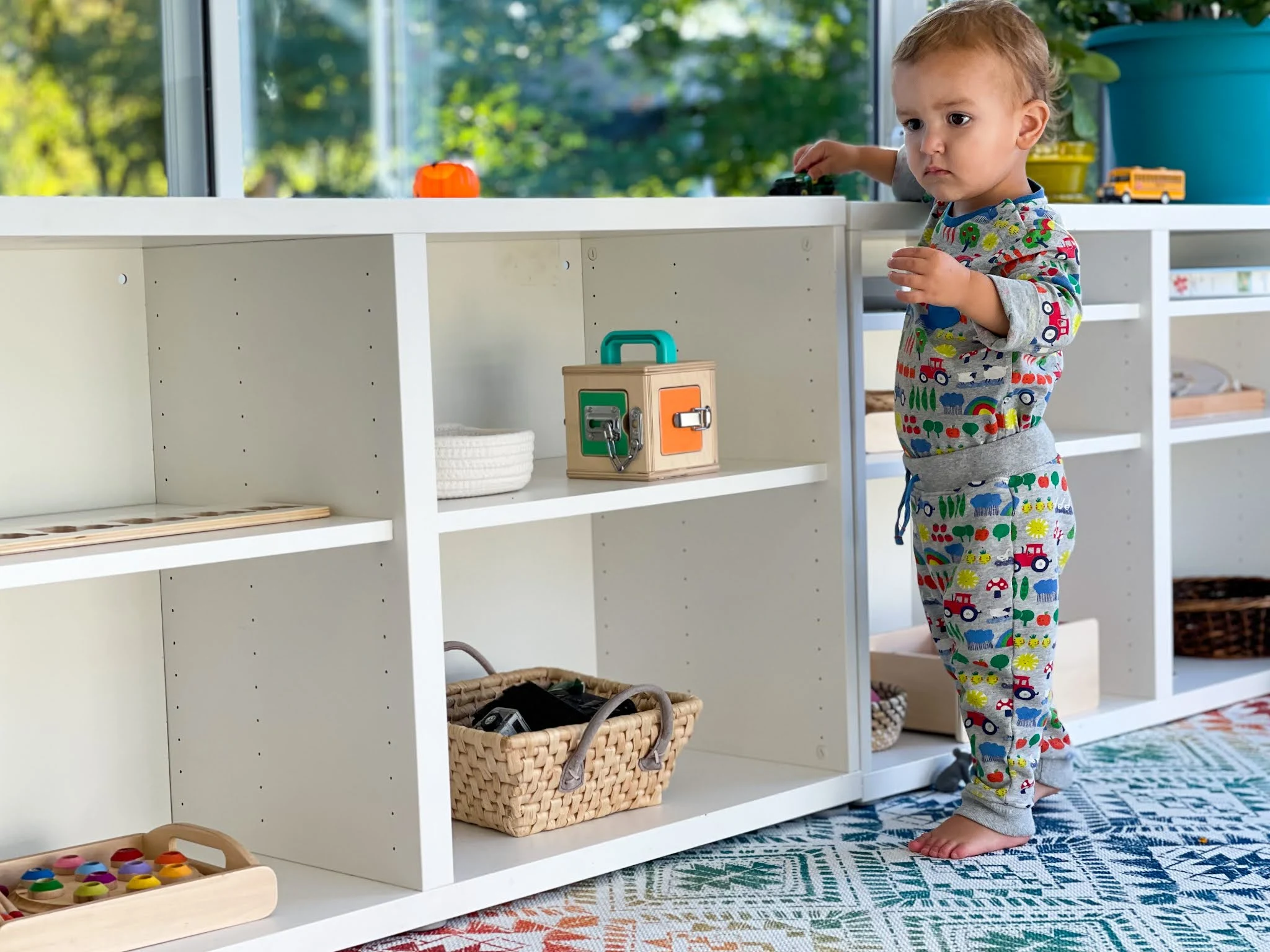"Hey Teddy, do you want a cookie too?" "NO!" "Teddy, should we go outside?" "NO!" "We need to clean up this work." "NO!" No, no, no, no, no. It's probably Ted's most used word now at just over 2-years-old. All day, everyday. If this was my first experience with a toddler, I know my frustration would be starting to mount. Why is he suddenly so contrary? Why wont he listen? What does he want?! I know he wants that cookie, why is he saying no? I know he wants to go play outside. But everything thing is no.
Thankfully, this isn't my first dip into the lovely age and this isn't my first time with 2-year-olds. So, this time I can laugh and watch Teddy with wonder as he learns to confidently exert his independence in the world. This kind of behavior is exactly what I want to see in my older children. I want them to clearly state what they need, to set boundaries, and express their feelings. So I need to foster it in my toddler too.
But, that doesn't mean it isn't annoying or that the "no" is even particularly reliable at this age. So, what do we do about it?
Dealing with No
- Our Expectations: We have to recognize that this is normal, healthy, expected toddler behavior. It's not about defiance or trying to make you mad. It's your toddler learning that they are a separate person from you and that "no" is a very powerful signal to you that they are learning that. Know that it's a phase that will ease over time as toddlers become more aware and more verbal.
- Wait: Resist the urge to respond and give too much power to no. Instead, remember that toddler brains process information a LOT slower than adult brains, so if you give them an extra few seconds, toddlers will often give you their true answer. The no becomes an automatic answer that they need to override in themselves.
- Watch Your Own "No": Toddlers learn the power of the word no from hearing it. Use more concrete language like "stop your feet" or "leave the plate at the table" or whatever you would like your child to do instead of just no. We don't need to completely avoid the word no, but we need to be aware of how much we are using it and give richer language examples for our toddler throughout the day.
- Limit Questions and Choices: There are times when we need our toddlers to do something or pick something. Instead of asking open ended questions like "would you like to get dressed?" try saying something like "it's time to get dressed. do you want this shirt or that one?" Be specific with what you are asking them and with the choices that are available. If you do ask a yes or no question, you need to be prepared to respect the "no" if that really is their answer.
Remember again to see this phase as an exciting turn in your child's development, as frustrating as it can be from time to time. We can approach it with a lighthearted understanding that they don't really mean it and the no's will eventually stop.
Does your toddler say no to everything?





